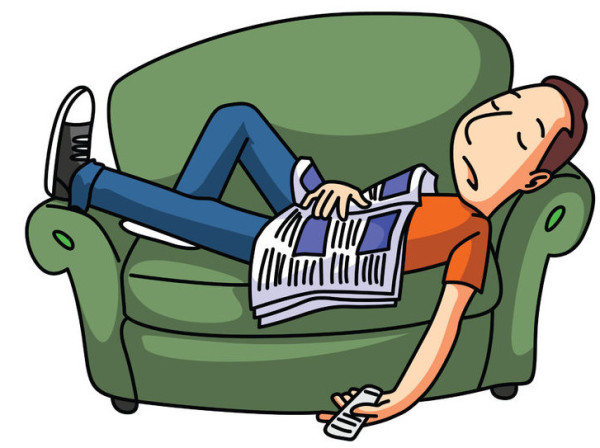Laziness might feel like a harmless indulgence, but prolonged inactivity can significantly affect your body and mind. From physical health concerns like obesity and weakened immunity to mental health issues such as depression and anxiety, the impact is profound. Understanding these effects empowers us to take small but meaningful steps toward a more active lifestyle.

. The Physical Burden of Laziness
Our bodies are like finely-tuned machines—they thrive on movement and function best when used regularly. A sedentary lifestyle, however, can lead to numerous health challenges:
a. Weight Gain and Obesity
When we’re inactive, our calorie expenditure reduces, but if our calorie intake remains the same (or increases), the body stores the surplus as fat. Over time, this can lead to weight gain and obesity, increasing the risk of diabetes, heart disease, and joint problems.
b. Weak Muscles and Bones
Regular activity keeps our muscles strong and our bones dense. Prolonged inactivity, on the other hand, causes muscle wasting and bone loss, increasing the risk of osteoporosis. Weak muscles also lead to poor posture, back pain, and an overall lack of energy.
c. Poor Cardiovascular Health
The heart is a muscle that needs exercise to stay strong. Inactivity can lead to poor circulation, higher cholesterol levels, and an increased risk of hypertension and cardiovascular diseases. It’s like letting a car sit idle for too long—parts begin to rust, and performance declines.
d. Digestive Issues
Our digestive system benefits from movement. Physical activity helps regulate bowel movements and prevents conditions like constipation. Prolonged sitting, however, slows down digestion and can lead to discomfort and bloating.
e. Weakened Immune System
Did you know that regular exercise boosts your immune system? A sedentary lifestyle makes you more prone to illnesses as it weakens the body’s ability to fight off infections.
2. The Mental and Emotional Weight
My child, the mind and body are closely connected. When one suffers, the other often follows. Inactivity can weigh heavily on mental health, too.
a. Increased Risk of Depression and Anxiety
Physical activity releases endorphins, often called “happy hormones,” which boost mood and reduce stress. When you’re inactive, these natural mood boosters diminish, leaving you vulnerable to feelings of sadness and anxiety.
b. Decline in Cognitive Function
The brain thrives on the oxygen and nutrients delivered through good blood circulation, which is enhanced by movement. A lack of activity can impair memory, concentration, and overall cognitive function, making it harder to stay sharp and alert.
c. Lower Self-Esteem
Laziness often brings guilt and self-doubt, especially when it hampers productivity or goals. This can create a vicious cycle where inactivity leads to low self-esteem, and low self-esteem, in turn, feeds more inactivity.
d. Sleep Problems
Ironically, inactivity can make you feel both tired and restless. Physical activity helps regulate sleep patterns, so when you’re sedentary, it’s harder to fall asleep and stay asleep, leading to fatigue and irritability during the day.
3. Why Laziness Feels So Tempting
Before we judge ourselves too harshly, let’s understand why laziness can feel so comfortable. Modern life is designed for convenience. With a tap on your phone, you can order food, work from home, or binge-watch an entire series. The ease of doing everything from the comfort of a chair makes it easy to forget the importance of movement.
Additionally, our brains often seek the path of least resistance. When faced with a choice between effort and ease, the latter feels more rewarding in the short term. But remember, what is easy now may be hard later.
4. The Road to Balance: Combating Laziness Without Overwhelming Yourself
The solution to laziness isn’t to push yourself into exhaustion but to find balance and embrace a healthier lifestyle. Here are some simple yet effective steps:
a. Start Small
You don’t have to climb a mountain or run a marathon. Begin with small changes like a daily 10-minute walk, stretching exercises, or even standing up and moving around every hour.
b. Make Movement Fun
Choose activities you enjoy—dance, swim, cycle, or play a sport. When you look forward to an activity, it no longer feels like a chore.

c. Set Realistic Goals
Instead of aiming for drastic changes, set achievable goals. For example, commit to three workouts a week or aim to increase your daily step count by 500.
d. Build a Routine
Incorporate movement into your daily schedule. Whether it’s a morning yoga session, a mid-day walk, or evening stretches, consistency matters more than intensity.
e. Limit Screen Time
Set boundaries for how much time you spend sitting in front of screens. Take breaks to stretch, stand, or move around.
f. Practice Self-Compassion
Don’t beat yourself up for being lazy occasionally. Recognize the need for rest but also remind yourself of the benefits of being active. Balance is key.
5. The Long-Term Rewards of an Active Lifestyle
An active life offers more than just physical fitness. It brings mental clarity, emotional resilience, and a sense of accomplishment. You’ll sleep better, think better, and feel better. With time, even small changes add up to big transformations.
Q&A Section
Ques 1. Why is laziness often considered a bad thing?
Ans: Laziness, when prolonged, can lead to inactivity, which negatively impacts both physical and mental health. However, short periods of rest are necessary and should not be confused with chronic laziness.
Ques 2. Can mental health issues cause laziness?
Ans: Yes, conditions like depression or anxiety can lead to feelings of fatigue and inactivity. It’s important to address underlying mental health issues rather than just the symptoms.
Ques 3. How can I stay motivated to be active?
Ans: Focus on activities you enjoy, set small and realistic goals, and celebrate your progress. Surrounding yourself with supportive people also helps maintain motivation.
Ques 4. What are some immediate benefits of physical activity?
Ans: Even a short burst of activity can boost mood, increase energy levels, improve focus, and reduce stress. It’s a quick way to feel better both physically and mentally.